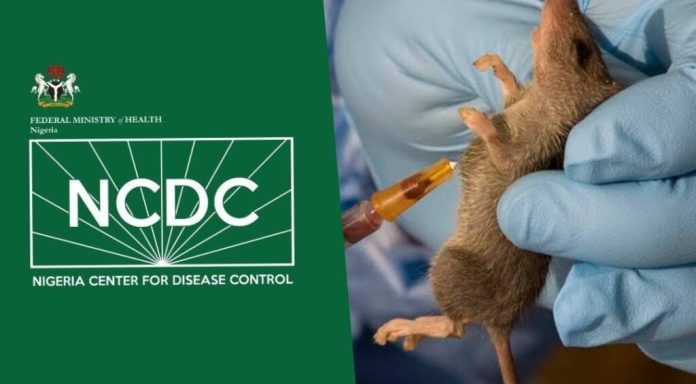Nigeria Centre for Disease Control and Prevention, NCDC, has confirmed a total of 832 cases and 135 deaths from Lassa fever and Mpox as of Week 16 of 2025.
Its Director-General, Jide Idris, who disclosed this yesterday during a national health security briefing in Abuja, reaffirmed the agency’s commitment to safeguard public health through timely, transparent and accurate disease reporting.
Dr Idris said surveillance and response efforts are ongoing in collaboration with state health authorities and partners to monitor disease trends and support affected states with rapid interventions.
“Cumulatively, as of epidemiological week 16, Nigeria has recorded 4,253 suspected cases of Lassa fever, with 696 confirmed and 132 deaths, representing a case fatality rate of 19 percent,” he said.
He noted that while there has been a steady decline in Lassa fever cases in recent weeks, particularly in week 16 ending April 20, the risk remains high, especially in endemic areas.
“These improvements reflect the positive impact of surveillance, treatment and community engagement. However, we must sustain and intensify our efforts,” he added.
Providing an update on Mpox, he stated that between weeks 1 and 16 of 2025, the country recorded 723 suspected cases across 35 states and the Federal Capital Territory, FCT, with 136 confirmed in 27 states and the FCT.
“Sadly, we recorded three Mpox-related deaths; two in Week 10 in Abia and Ebonyi States, and one more recently in Rivers State involving a young male with advanced HIV and tuberculosis. This brings the national case fatality rate to 2.2 percent,” he said.
He explained that the Mpox epidemic curve showed multiple peaks in suspected and confirmed cases, indicating sustained transmission. Most confirmed cases were concentrated in Nigeria’s southern and central regions.
He highlighted that the disease cuts across various professional groups, including students, traders, civil servants and healthcare workers, posing risks for both community and healthcare-associated transmission.
On Cerebrospinal Meningitis, CSM, Dr Idris reported a sustained decline in new cases and fatalities as of week 14, attributing the trend to enhanced surveillance, treatment and vaccination strategies.
“Though the outbreak remains serious, national and sub-national coordination, preparedness and vaccination efforts are helping to turn the tide. We will maintain this response until full containment is achieved and states fully implement their Incident Action Plans,” he said.
To curb the spread of these diseases, NCDC said it has activated a multi-tiered response strategy including Emergency Operations Centre for national and state-level coordination, with regular review meetings involving hotspot states and deployment of National Rapid Response Teams to strengthen local capacity.
The Centre also said that it has activated strategic distribution and pre-positioning of essential medicines, intravenous fluids, personal protective equipment, laboratory consumables and enhanced laboratory capacity at the state level and referral support to the NCDC National Reference Laboratory in Abuja and the Central Public Health Laboratory in Yaba, Lagos.
NCDC added that five Mpox testing laboratories have been optimised across Bauchi, Kano, Cross River, Rivers and Enugu States, with mentorship programmes underway to improve sample handling and result turnaround times.
Dr Idris added that ongoing coordination with state health teams ensures the timely adaptation of messaging based on community feedback. Epidemiological data, including age, geography and case incidence, are also informing vaccination strategies.
He revealed that a mortality review was being held regarding Mpox-related deaths in Abia, Ebonyi, and Rivers States, noting that the interventions aim to strengthen the country’s outbreak response system and reduce preventable deaths.





